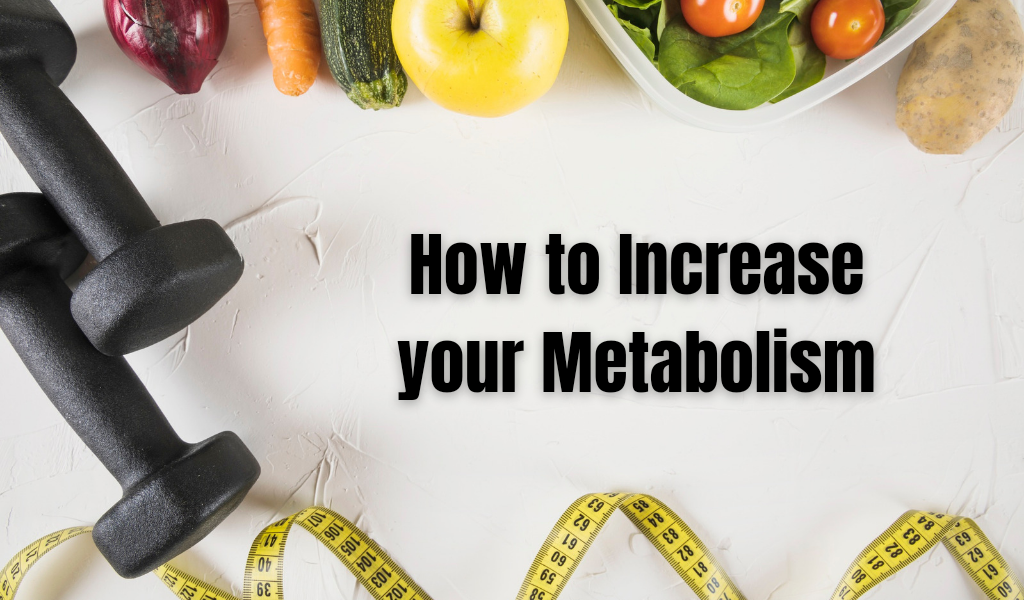
Having a fast metabolism is the Holy Grail for many people trying to lose weight or maintain a healthy weight. A faster metabolism burns more calories, making it easier to shed unwanted pounds. The bad news is that metabolism is largely determined by genetics. However, there are lifestyle changes you can make to give your metabolism a boost. Here are some of the most effective ways to increase your metabolism.
Eat More Protein
Protein is hands down one of the best nutrients for revving up your metabolism. Your body burns a lot of calories digesting and metabolizing protein. The thermic effect of food (TEF) refers to the amount of calories burned just through the process of digesting and absorbing nutrients. Protein has a much higher TEF than carbs or fat. Studies show that eating more protein can boost metabolism by up to 80-100 more calories per day compared to lower protein diets. Aim to include a good protein source at every meal and snack. Great options include meats, eggs, greek yogurt, cottage cheese, protein powders, beans and lentils.
Do Strength Training
Building muscle is one of the most effective ways to speed up your metabolism. Muscle tissue is more metabolically active than fat, burning more calories at rest. Strength training with weights or resistance bands can help build and preserve lean muscle mass. As you gain muscle, your resting metabolism increases because your body has to burn more calories to sustain that muscle 24/7. Do full body strength sessions 2-3 times per week to see major boosts in your metabolism. Compound exercises like squats, deadlifts and push-ups work multiple muscle groups simultaneously.
Add in HIIT Workouts
Doing short bursts of High Intensity Interval Training (HIIT) is another great metabolism booster. HIIT workouts alternate short periods of really intense exercise with recovery periods. Sprinting, cycling, jump rope and metabolic circuits are great options. The intense intervals cause an afterburn effect, which means your body continues burning extra calories after the workout is over. Just a few minutes of HIIT several times per week can significantly impact your metabolism.
Stay Hydrated
Drinking more water is an easy way to fire up your fat-burning furnace. Being even mildly dehydrated slows your metabolism down. When your body lacks fluid, it tries to prevent water loss in various ways, including by reducing the amount of calories burned. Make a point to drink water consistently throughout the day. Aim for at least eight 8-ounce glasses daily. You can also bump up water intake by drinking unsweetened teas and eating foods with high water content like fruits, veggies and soups.
Get Plenty of Sleep
Skimping on sleep can wreak havoc on your metabolism. Not getting the recommended 7-9 hours per night negatively impacts hormones that regulate hunger and satiety. When you’re exhausted, your body produces more of the stress hormone cortisol. Higher cortisol triggers cravings for sugary, fatty foods to give you quick energy. Tiredness also reduces your motivation to exercise.Aim for 7-9 hours of high quality sleep every night to keep your metabolism churning on high. Develop good sleep habits like sticking to a schedule, limiting screen time before bed and creating a restful sleep environment.
Manage Stress
Chronic stress can cause hormonal imbalances that slow down your metabolism. Stress leads to elevated cortisol levels, which promotes fat storage around the midsection. Stress eating and poor food choices are common when you feel overloaded. Making time for relaxation daily is key. Activities like meditation, yoga, deep breathing and journaling help lower stress hormones. Getting massages and making time for hobbies also helps. Evaluate your schedule and look for ways to reduce overload. Delegating tasks and saying no to non-essentials can free up time and reduce stress.
Consume Metabolism-Boosting Foods
Certain foods have compounds that directly help rev up your metabolism. Adding these superfoods to your diet can give your metabolism a slight boost. Foods like green tea, black coffee, hot peppers, apples, grapes, citrus fruits, beans, lentils, and whole grains have been shown to modestly increase calorie burning. Spices like turmeric, cinnamon, ginger and cayenne pepper can also increase metabolism. The key is incorporating these foods regularly, not just adding them sporadically. Making green tea your morning beverage or adding cayenne to your eggs are simple ways to benefit daily.
Increase NEAT
NEAT stands for Non-Exercise Activity Thermogenesis. This refers to calories burned through daily movement like walking, cleaning, tapping your foot or standing. The more movement you do during the day, the more calories you burn outside of formal exercise sessions. Look for ways to increase NEAT in your day by pacing during phone calls, taking the stairs, walking to run errands, dancing while cooking, doing yard work or cleaning your house vigorously. Even small habits like standing versus sitting at your desk burns 50 more calories per hour. It all adds up significantly over the course of a day and week.
Get Up and Move After Meals
Going for a short walk after eating helps boost metabolism. Taking a 15 minute walk after each meal can aid in digestion and utilization of nutrients. Research shows that this simple habit can lead to weight loss over time without any other changes in diet or activity. Walking after eating also helps regulate blood sugar levels. Make it a habit to get outdoors or walk laps in your home after breakfast, lunch and dinner whenever possible. Even a couple laps up and down stairs can get things moving.
Eat Spicy Foods
Adding spicy foods to your diet provides a metabolism kick. Compounds like capsaicin found in peppers give your metabolism an instant surge. Eating spicy foods causes your body temperature to rise slightly, prompting you to burn more calories. Adding spices like cayenne, chili powder, paprika and mustard to meals is an easy way get the metabolism boosting effects. You can also snack on spicy flavored nuts, enjoy spicy salsa with veggies or add hot sauce to many dishes.
Swap Refined Grains for Whole Grains
Whole grains like quinoa, brown rice, oats, whole wheat bread and millet can give your metabolism a little jolt. Refined grains have had the fiber removed during processing, while whole grains retain their fiber content. Fiber makes your body work harder to digest and break down the food, which burns more calories. Fiber also suppresses appetite by slowing digestion and regulating blood sugar levels. Shoot for at least three servings of whole grains daily to work them into your diet.






